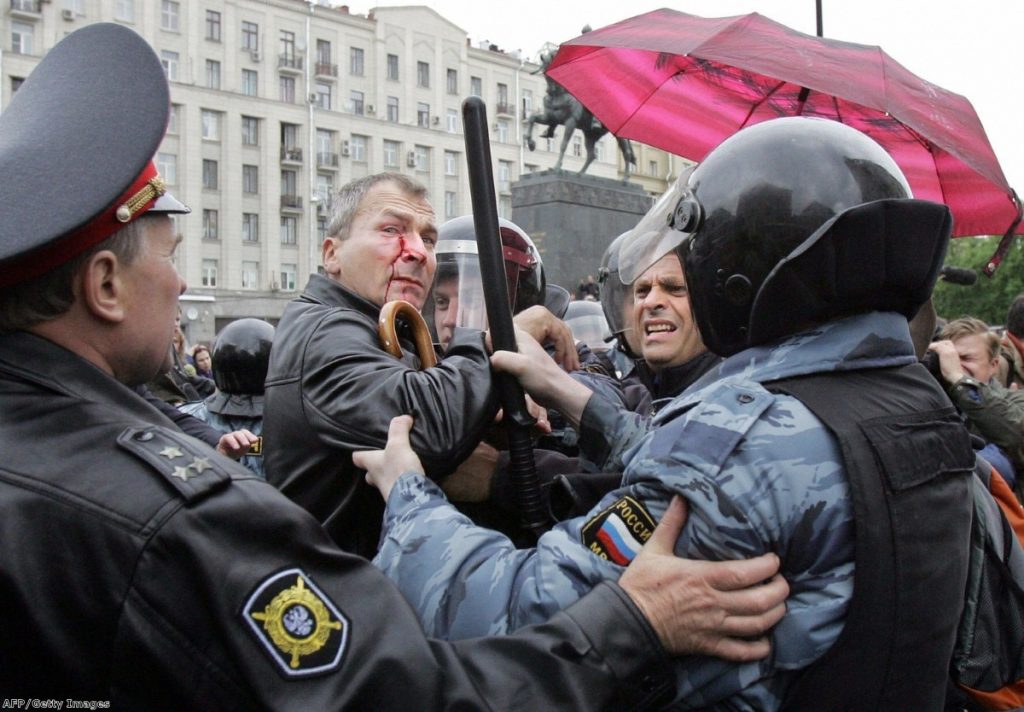Foreign Office lashes out at Russia’s ‘Section 28’ law
By Ian Dunt Follow @IanDunt
A Russian law which equates homosexuality with paedophilia has been attacked by the Foreign Office, as relations between the two countries reach a new low.
The law, which fines groups and individuals for "public actions aimed at propaganda of pederasty, lesbianism, bisexuality, and transgenderism among minors" is an attempt to criminalise gay public protests in Russia, campaigners say.
"We, along with a number of EU partners, have strong concerns about this legislation and made these concerns known to the St Petersburg Legislative Assembly," a Foreign Office spokesperson told politics.co.uk.
The bill could not come at a worse time for Anglo-Russian relations, with the two countries still at loggerheads over Russia's veto of a UN resolution on the violence in Syria.
Speaking during PMQs this afternoon, David Cameron said: "Russians have to look at their consciences and think about what they have done".
The draft bill banning "homosexual propaganda" was passed by the St Petersburg City Duma tonight. It is still to be signed into law by St. Petersburg’s Mayor.
Several activists were arrested outside the parliament building while protesting the law.
Campaigners fear it will serve as a model for imposing federal restrictions on LGBT [lesbian, gay, bisexual and transsexual] people.
The law was developed by the United Russia party, which Russian president Dmitry Medvedev and prime minister Vladimir Putin both belong to.
"It’s a Russian version of Section 28 [the Thatcher-era law which banned local authority from 'promoting' homosexuality]," gay rights campaign Peter Tatchell told politics.co.uk.
"This would criminalise any education campaign or public protest in support of LGBT rights where there was a possibility that young people might witness it.
"Although its ostensibly aimed at protecting minors its remit is so sweeping it would criminalise nearly all LGBT free expression and protest."
Campaigners fear even books and cinema screenings could fall under the law's remit.
"The bill doesn't touch upon the human rights of the LGBT community," said the initiator of the bill, United Russia deputy Vitaly Milonov.
"It deals purely with the direct propaganda among minors. Such propaganda is banned on the federal level and we as a regional body are only imposing sanctions."
EU foreign secretary Catherine Ashton pledged to take up the issue with prime minister Putin. The US State Department also vowed to voice its concerns to the Russian embassy.
Campaigners say the law contradicts Russia's own constitution, which guarantees the right to free assembly and expression as well as a number of international treaties.
Gay rights have consistently faced state violence in Russia.
Moscow's gay pride marches were regularly banned by Moscow City Hall, while the demonstration was attacked by a homophobic mob in 2006, 2007 and 2008.





-01.png)